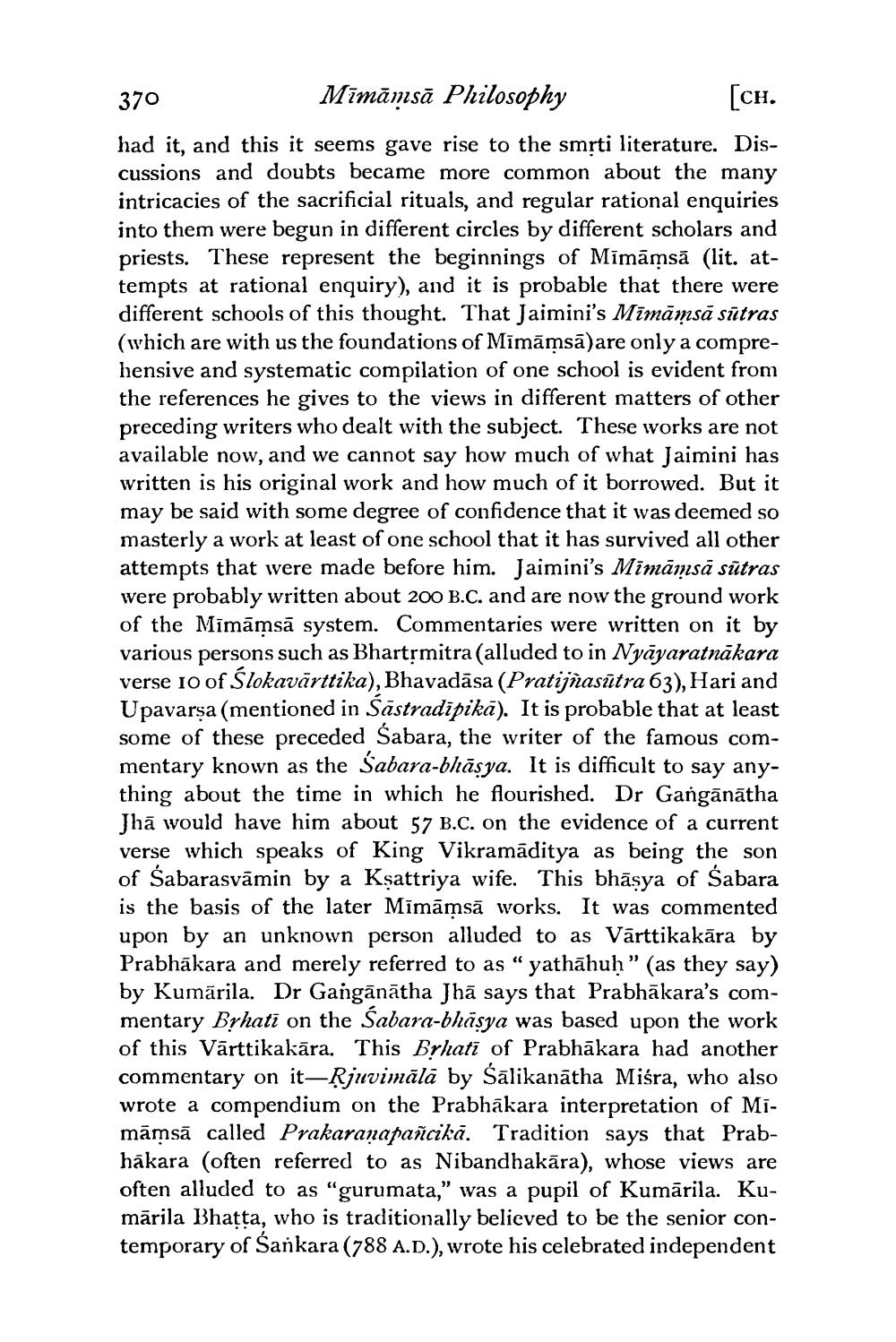________________
370
Mīmāmsā Philosophy
[CH.
had it, and this it seems gave rise to the smrti literature. Discussions and doubts became more common about the many intricacies of the sacrificial rituals, and regular rational enquiries into them were begun in different circles by different scholars and priests. These represent the beginnings of Mīmāmsā (lit. attempts at rational enquiry), and it is probable that there were different schools of this thought. That Jaimini's Mīmāmsā sūtras (which are with us the foundations of Mīmāmsā)are only a comprehensive and systematic compilation of one school is evident from the references he gives to the views in different matters of other preceding writers who dealt with the subject. These works are not available now, and we cannot say how much of what Jaimini has written is his original work and how much of it borrowed. But it may be said with some degree of confidence that it was deemed so masterly a work at least of one school that it has survived all other attempts that were made before him. Jaimini's Mimāmsā sūtras were probably written about 200 B.C. and are now the ground work of the Mīmāmsā system. Commentaries were written on it by various persons such as Bhartsmitra (alluded to in Nyāyaratnākara verse 10 of Slokavārttika), Bhavadāsa (Pratijñasūtra 63), Hari and Upavarşa (mentioned in Sastradīpikā). It is probable that at least some of these preceded Sabara, the writer of the famous commentary known as the Sabara-bhāsya. It is difficult to say anything about the time in which he flourished. Dr Gangānātha Jhā would have him about 57 B.C. on the evidence of a current verse which speaks of King Vikramaditya as being the son of Sabarasvāmin by a Kşattriya wife. This bhāsya of Sabara is the basis of the later Mīmāmsā works. It was commented upon by an unknown person alluded to as Vārttikakāra by Prabhākara and merely referred to as "yathāhuh” (as they say) by Kumārila. Dr Gangānātha Jhā says that Prabhākara's commentary Brhati on the Sabara-bhāsya was based upon the work of this Vārttikakāra. This Brhatī of Prabhākara had another commentary on it-Rjuvimālā by Sālikanātha Miśra, who also wrote a compendium on the Prabhākara interpretation of Mimāmsā called Prakaranapañcikā. Tradition says that Prabhākara (often referred to as Nibandhakāra), whose views are often alluded to as "gurumata,” was a pupil of Kumārila. Kumārila Bhatta, who is traditionally believed to be the senior contemporary of Sankara (788 A.D.), wrote his celebrated independent




